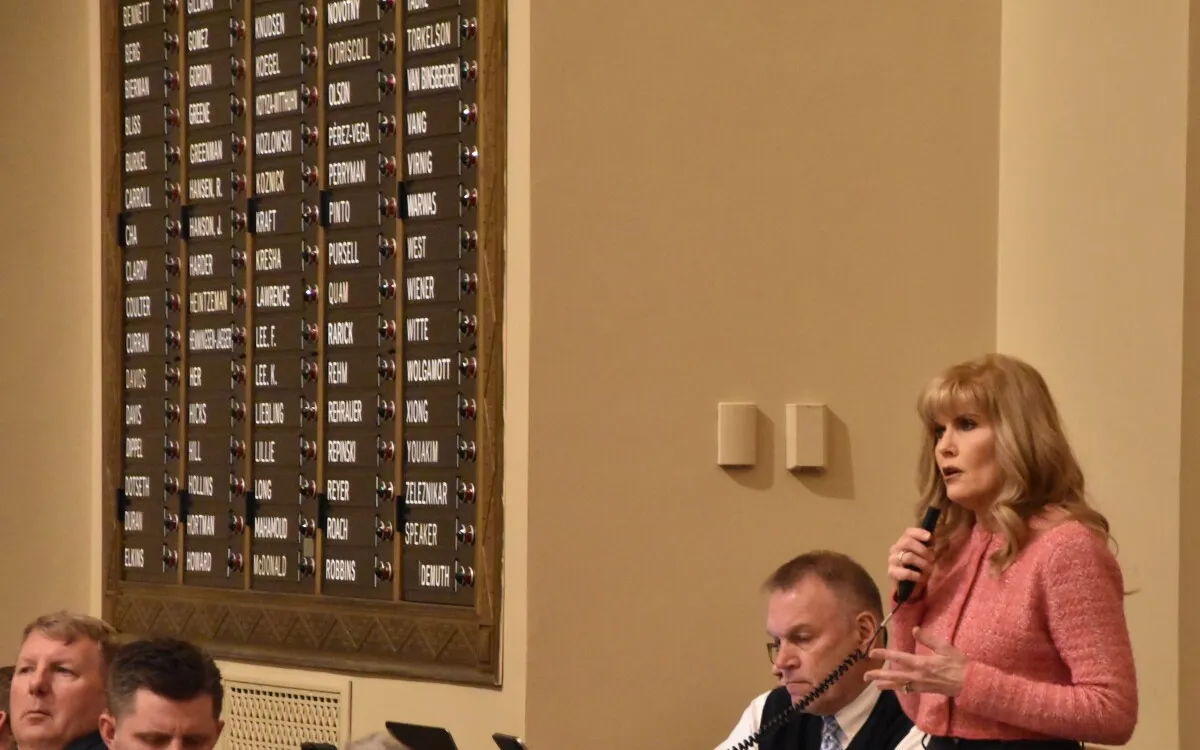
On Monday, the Minnesota House of Representatives narrowly missed passing a significant bill, known as HF12 or the “Preserving Girls Sports Act,” which aimed to ban transgender girls from participating in female K-12 sports. The vote concluded with a count of 66 for and 67 against, revealing a deep partisan divide in the chamber. After nearly two hours of heated debate, the bill was tabled for later consideration, highlighting the contentious nature of the issue.
The proposed legislation sought to restrict female sports team participation to individuals defined as female based on their biological sex. Rep. Peggy Scott, R-Andover, the bill's author, expressed concerns about the impact of allowing transgender girls to compete in female sports. "Are we to ignore the feelings and actual science and safety of females for a small percentage of biological males?" she questioned during the debate.
The bill specifically defines a female as someone who has a reproductive system capable of producing eggs for fertilization, except in cases of congenital anomalies or other disruptions. If passed, HF12 would necessitate the Minnesota High School League to implement these restrictions across all K-12 girls sports, marking Minnesota as the 23rd state to introduce such measures.
Supporters of the bill, including Rep. Harry Niska, R-Ramsey, emphasized the importance of fairness and safety in preserving opportunities for female athletes in Minnesota. "House file 12 is a bill about fairness, safety, and preserving girls sports in Minnesota," he stated, referring to the protections established by Title IX.
Conversely, opponents of the bill criticized it as a discriminatory measure targeting a vulnerable group. DFL Leader Jamie Long, representing Minneapolis, denounced the bill as one of the ugliest pieces of legislation he had seen, arguing that it diverts attention from pressing issues faced by Minnesotans, such as the rising costs of groceries, housing, and childcare.
Rep. Leigh Finke, DFL-St. Paul, the first and only transgender member of the Minnesota Legislature, echoed Long's sentiments, asserting that the bill's focus on excluding transgender youth is harmful. "I don't think there's ever been a movement in history that has favorably looked upon excluding kids based on characteristics that some may not like," she remarked.
During the debate, several Democratic representatives highlighted the limited number of transgender athletes in Minnesota. Rep. Andy Smith, DFL-Rochester, pointed to a 2019 Minnesota student survey indicating that only 2.8% of ninth graders identified as transgender or gender non-conforming. He also referenced NCAA President Charlie Baker's testimony, which suggested there are fewer than ten transgender athletes across all NCAA divisions nationwide.
Despite the statistics, Rep. Scott maintained that the voices of young female athletes who feel affected by transgender participation should not be disregarded. "We heard from brave young girls in committee who testified about injuries," she stated, urging members to recognize the issue's validity.
This bill is part of a larger discussion surrounding transgender rights at the Minnesota Capitol. Attorney General Keith Ellison has filed lawsuits against executive orders from Donald Trump aimed at banning transgender women from women’s sports and blocking access to gender-affirming care. Additionally, lawmakers have introduced other bills, such as SF1651, aiming to classify individuals based strictly on biological sex, and HF435, which seeks to prohibit transgender women from facilities in Shakopee.
Before the vote, Republicans held a rally featuring athlete and advocate Riley Gaines, emphasizing their position that these bills are not about discrimination but rather about ensuring equal opportunities for female athletes. Sen. Carla Nelson, R-Rochester, stated, "This is not anti-trans at all." In contrast, Democrats organized a press conference and rally advocating for transgender rights, underscoring the need for respectful discourse on the matter.
As this debate continues, the future of transgender rights legislation in Minnesota remains uncertain, with advocates on both sides prepared to fight for their positions in the coming legislative sessions.